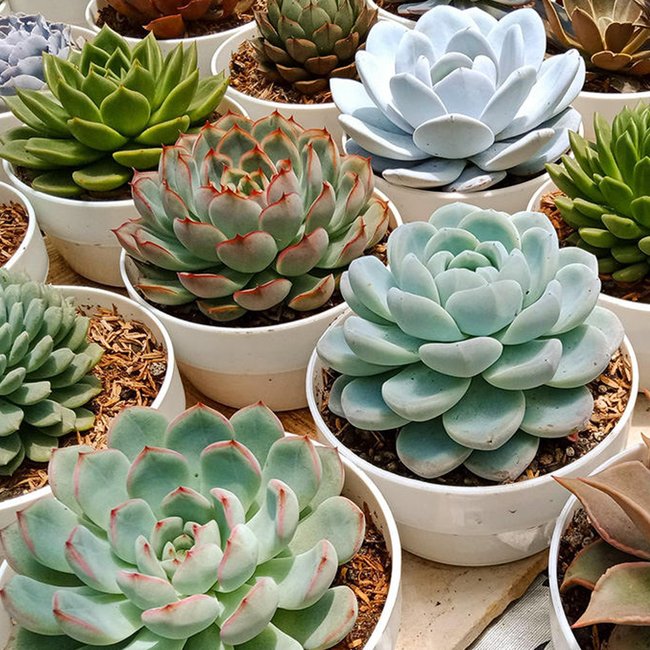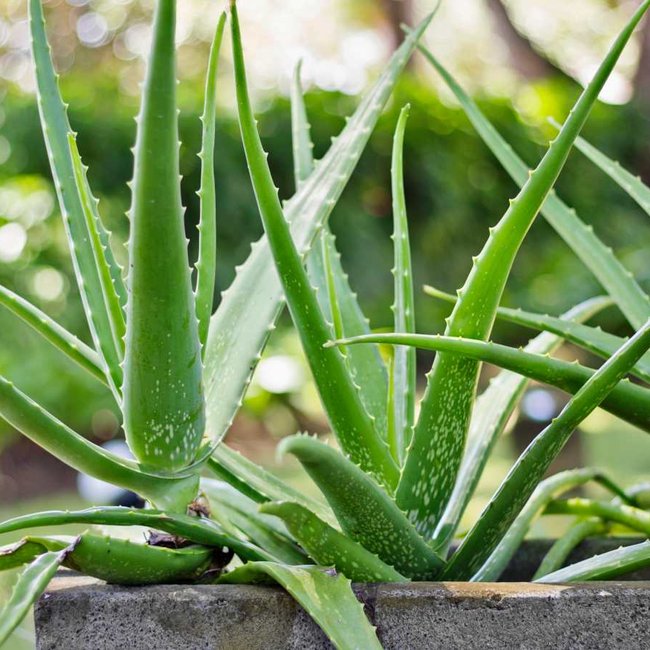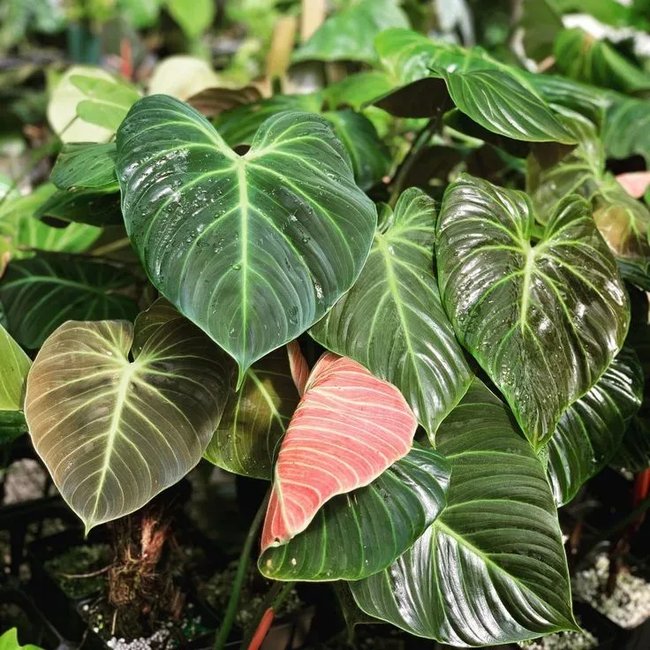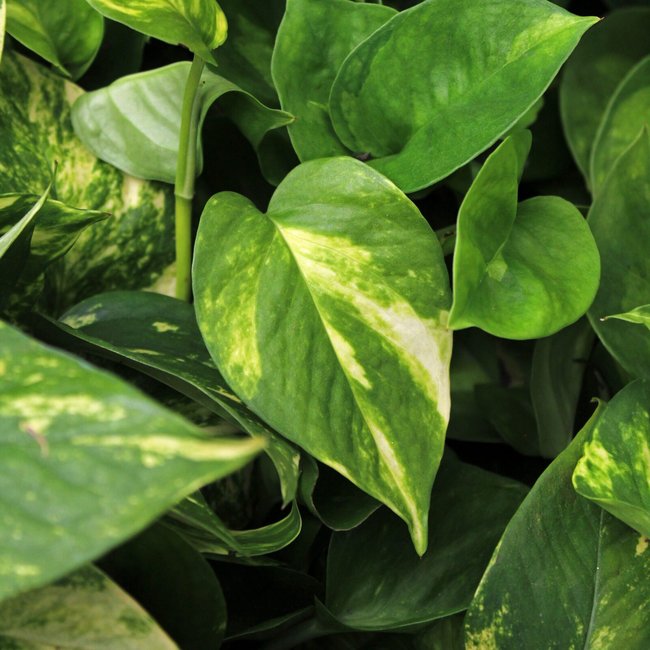Pionus
The Pionus, a captivating genus of medium-sized parrots native to Central and South America, has captured the hearts of bird enthusiasts worldwide. Boasting a diverse range of colors, patterns, and personalities, these parrots are not only visually stunning but also exhibit fascinating behavioral traits that make them an ideal subject for study and appreciation. As members of the family Psittacidae, Pionus parrots share certain characteristics with their relatives; however, they possess unique qualities that set them apart within the avian world. In this article, we will delve into the captivating world of Pionus parrots, exploring their natural habitats, diet, breeding habits, and conservation status. Furthermore, we will discuss the various species within this genus and highlight their distinctive features, as well as providing insight into their suitability as pets for those interested in aviculture. Join us on this enthralling journey as we uncover the many wonders of Pionus parrots and celebrate their vibrant presence in both the wild and our homes.
Meta Information
Scientific Name
The Pionus parrots belong to the genus Pionus within the family Psittacidae, which consists of approximately 350 species of parrots. The Pionus genus comprises eight distinct species, each with its unique scientific name: 1. Pionus maximiliani – Scaly-headed Parrot, also known as Maximilian's Parrot 2. Pionus menstruus – Blue-headed Parrot 3. Pionus tumultuosus – Speckle-faced Parrot, also referred to as Plum-crowned Parrot or White-capped Parrot 4. Pionus fuscus – Dusky Parrot 5. Pionus chalcopterus – Bronze-winged Parrot 6. Pionus sordidus – Red-billed Parrot, sometimes called the Sordid Parrot or Coral-billed Pionus 7. Pionus senilis – White-crowned Parrot, also known as the White-headed Pionus 8. Pionus sclateri – Blue-backed Parrot Each of these species exhibits different physical characteristics and inhabits various regions within Central and South America. As a whole, the genus is characterized by their medium size, stocky builds, and relatively short tails compared to other parrots in the Psittacidae family. The wide range of colors and patterns found among these species makes them visually stunning and highly sought after as pets for avian enthusiasts worldwide. In addition to their unique scientific names, several subspecies exist within these primary classifications that exhibit slight variations in appearance and behavior. As more research is conducted on these captivating birds, our understanding of their taxonomy continues to evolve, providing a richer understanding of the diverse world of parrots in the Psittacidae family.
Average Lifespan
The average lifespan of Pionus parrots can vary depending on factors such as species, diet, and living conditions. In general, these medium-sized parrots are known for their relatively long lifespans compared to other pet birds. With proper care and attention, a Pionus parrot can live between 25 to 40 years. There are several species of Pionus parrots, each with slightly different lifespans. Some of the most common species and their average lifespans are as follows: 1. Blue-headed Pionus (Pionus menstruus): 25-30 years 2. White-crowned Pionus (Pionus senilis): 25-30 years 3. Dusky Pionus (Pionus fuscus): 25-30 years 4. Maximilian's Pionus (Pionus maximiliani): 30-40 years 5. Bronze-winged Pionus (Pionus chalcopterus): 25-35 years It is essential to provide your Pionus parrot with a balanced diet consisting of high-quality pellets designed for parrots, fresh fruits, vegetables, and occasional seeds and nuts to ensure they live a long and healthy life. A well-maintained diet not only contributes to their longevity but also helps prevent diseases related to malnutrition. In addition to a proper diet, providing an enriched environment is crucial for the mental well-being of these intelligent birds. Regular social interaction, toys, a spacious cage, and opportunities for physical exercise will all contribute positively to their overall health and longevity. Regular veterinary check-ups are also necessary for early detection and treatment of any health issues your Pionus might encounter throughout its life. Prevention is key; as with any pet bird, education on proper care is essential to maximize the potential lifespan of your feathered companion. In summary, the average lifespan of a Pionus parrot ranges between 25 to 40 years, depending on the species and the quality of care provided. A balanced diet, proper housing, mental stimulation, and routine veterinary care are all crucial factors in ensuring your Pionus parrot lives a long, healthy life.
Average Size
The average size of a Pionus parrot is an important aspect to consider when discussing this species, as their size has implications for their habitat, diet, and care requirements. Pionus parrots are a medium-sized species of parrot, generally measuring between 10 to 12 inches (25 to 30 centimeters) in length from the tip of the beak to the tip of the tail. Their wingspan can range from 16 to 20 inches (40 to 50 centimeters), which provides them with ample ability for sustained flight. In terms of weight, Pionus parrots typically weigh between 200 and 280 grams. However, there can be some variation in size and weight across different subspecies within the Pionus family. For example, the Blue-headed Pionus (Pionus menstruus) is on the larger end of the spectrum, weighing up to 280 grams, while the White-crowned Pionus (Pionus senilis) is smaller and weighs around 200 grams. Despite these variations in size among different subspecies, all Pionus parrots share a stocky build with a short tail and relatively broad wings. This body structure allows them to be strong fliers that can navigate their natural habitats with ease. Understanding the average size of a Pionus parrot is crucial for potential owners as it helps determine appropriate cage sizes and space requirements for these birds. A medium-sized cage with plenty of space for toys and perches is ideal for housing a single Pionus parrot comfortably. Additionally, knowing their average size can help owners plan an appropriate diet that meets these parrots' nutritional needs while maintaining a healthy weight.
Similar To
African Grey Parrots, Amazon Parrots, Eclectus Parrots, Macaws, Cockatoos, Caiques, Conures, Quaker Parrots, Lovebirds, Alexandrine Parakeets
Lifecyle
The lifecycle of Pionus parrots can be divided into several stages, including hatchling, fledgling, juvenile, and adult. Each stage is characterized by unique physical and behavioral changes as the Pionus grows and develops. Hatchling Stage (0-4 weeks): The Pionus begins its life in an egg, which typically takes around 24-28 days to incubate before hatching. Upon hatching, Pionus chicks are blind, featherless, and entirely dependent on their parents for warmth and nourishment. During this stage, the mother feeds her chicks a regurgitated mixture of seeds or fruits in order to ensure they receive the necessary nutrients for growth. Fledgling Stage (4-12 weeks): As the hatchlings grow and develop feathers over the course of 4-8 weeks, they transition into the fledgling stage. During this time, their eyesight improves, and they gradually begin to explore their surroundings. Although still reliant on their parents for food and protection, fledglings start to practice flying skills by flapping their wings and taking short flights within the nesting area. Juvenile Stage (3-12 months): Once a Pionus parrot has mastered the art of flying and becomes more independent in terms of feeding itself, it enters the juvenile stage. This period is marked by increased curiosity as they learn essential survival skills from both their parents and other flock members. Their plumage continues to develop during this time – with adult colors gradually appearing – but juveniles are still distinguishable from adults by their less vibrant coloration. Adult Stage (1 year onwards): Upon reaching sexual maturity at around 1 year old – although some species may take up to 3 years – a Pionus parrot is considered an adult. At this stage in their lifecycle, they are ready to form pair bonds with potential mates and reproduce. Adult Pionus parrots display a full array of vibrant colors and intricate feather patterns, which may vary slightly depending on the specific species. Breeding and Reproduction: Pionus parrots typically form monogamous pair bonds and breed once or twice per year, depending on environmental factors like food availability. When preparing to breed, a pair will search for a suitable nesting site – often a tree cavity or hollow – where they will lay 3-5 eggs. As mentioned earlier, the female takes on the responsibility of incubating the eggs while the male provides her with food and protection. In conclusion, the lifecycle of Pionus parrots is an intricate process marked by several developmental stages from hatchling to adult. These intelligent birds rely heavily on their parents and flock members to learn essential survival skills and social behaviors. With an average lifespan of 25-40 years in captivity (although some have been known to live longer), Pionus parrots are truly fascinating creatures that captivate bird enthusiasts worldwide.
Diet
The diet of Pionus parrots plays a crucial role in their overall health and well-being. These medium-sized parrots, native to Central and South America, require a well-balanced and varied diet to ensure they receive all the necessary nutrients for maintaining their vibrant plumage, strong immune system, and high energy levels. In the wild, Pionus parrots primarily feed on fruits, seeds, nuts, berries, and leafy vegetation. They may also consume small insects and larvae occasionally. To mimic this natural diet in captivity, it is essential to provide them with a diverse range of fresh foods supplemented with high-quality commercial pellets. Commercial pellets should make up approximately 60-70% of a Pionus parrot's diet. It is vital to select a premium pellet brand specifically formulated for parrots to guarantee proper nutrition. Pellets offer a balanced mix of essential vitamins, minerals, proteins, carbohydrates, and fats that are crucial for the bird's health. The remaining portion of their diet should consist of fresh fruits and vegetables. Some suitable options include apples, bananas, oranges, grapes, kiwis, mangoes, papayas, pears, pineapples, strawberries, blueberries, raspberries as well as carrots, peas, corns on the cob or frozen corn kernels (thawed), kale or collard greens (lightly steamed), sweet peppers (red or green), zucchinis or courgettes. It is essential to wash all fruits and vegetables thoroughly before serving them to your Pionus parrot to remove any chemicals or pesticides. Additionally, remove any seeds or pits from fruits as they can be toxic or pose a choking hazard. You should aim to provide your bird with a selection of different fruits and vegetables daily to ensure they receive an assortment of necessary nutrients. Seeds and nuts can be offered occasionally as treats but should not form the majority of their diet. They are high in fat and can lead to obesity if consumed in large amounts. Some healthy options for treats include sunflower seeds, almonds, walnuts, or pistachios, preferably unsalted and unroasted. It is crucial to provide clean, fresh water to your Pionus parrot daily. They should have access to water at all times for drinking and bathing. Regularly check the water dish for any contamination or debris and clean it as needed. Avoid offering your Pionus parrot foods that are high in sugar, salt, or fat, and be aware of toxic foods such as avocado, chocolate, caffeine, or alcohol. Providing a balanced and varied diet will not only contribute to the health and longevity of your Pionus parrot but also help prevent boredom and encourage natural foraging behaviors.
Habitat
The Pionus parrots are native to the diverse habitats of Central and South America, ranging from Mexico in the north down to Argentina in the south. These birds are highly adaptable and can thrive in a variety of environments, including tropical rainforests, subtropical forests, montane forests, and even semi-arid regions. The availability of nesting sites and food sources plays a significant role in determining the distribution of Pionus species within these habitats. In the lush tropical rainforests, Pionus parrots can be found dwelling in both lowland and highland areas. They typically inhabit altitudes between 300 to 2,800 meters above sea level (984 to 9,186 feet), with some species like the White-crowned Pionus (Pionus senilis) preferring the higher elevations up to 3,000 meters (9,843 feet). These dense forests provide ample food sources for the Pionus, such as fruits, seeds, and flowers. Subtropical forests are home to several species of Pionus parrots as well. The Blue-headed Pionus (Pionus menstruus), for example, is commonly found in these regions. These forests offer a more temperate climate with distinct wet and dry seasons that influence the breeding and feeding habits of these birds. The montane forests provide a unique habitat for some Pionus species. The Scaly-headed Parrot (Pionus maximiliani) is known to inhabit these environments characterized by cooler temperatures and higher elevations than other habitats. In these areas, Pionus parrots primarily feed on seeds from various plants like Podocarpus trees. Semi-arid regions also host certain species of Pionus parrots such as Dusky Parrot (Pionus fuscus). These dry environments have sparse vegetation with fewer food sources compared to their forest counterparts, so Pionus parrots in these areas rely heavily on cacti and other succulent plants for sustenance. Despite their adaptability, some Pionus parrots face habitat loss and fragmentation due to deforestation, agriculture, and urbanization. This has led to a decline in the population of certain species, prompting conservation efforts to protect their habitats and ensure their survival in the wild.
-
What is a Pionus bird?
Pionus (pronounced pee-oh-nus) is a genus of medium-sized parrots that are native to Central and South America. They are known for their gentle and sweet nature, making them popular pets. There are around eight species of Pionus birds, each with their own unique characteristics and colorations.
-
What do Pionus birds eat?
In the wild, Pionus birds mostly feed on fruits, nuts, and seeds. As pets, they should be provided with a well-balanced diet that consists of high-quality pellets, fresh fruits, and vegetables. It is important to avoid feeding them with foods that are high in fat, salt, and sugar as these can be detrimental to their health.
-
How long do Pionus birds live?
Pionus birds can live up to 25 years or more with proper care and attention. This is a significant commitment for potential owners to consider before adopting a Pionus bird as a pet.
-
Do Pionus birds talk?
Pionus birds are not known for their exceptional talking ability, but they can mimic some words and phrases with training. They have a unique way of communicating through their vocalizations, which can be quite entertaining.
-
Are Pionus birds good pets?
Yes, Pionus birds can make great pets for the right owner. They are known for their gentle and sweet nature, making them an excellent choice for families with children or seniors. They are also relatively quiet compared to other parrot species, which is ideal for those living in apartments or close living quarters.
-
How can I take care of a Pionus bird?
Proper care and attention are crucial for the health and happiness of a Pionus bird. This includes providing them with a spacious cage, a well-balanced diet, fresh water, toys for mental stimulation, and regular vet checkups. They require daily interaction and socialization with their owners to thrive.
-
Are Pionus birds good with other pets?
Pionus birds can coexist with other pets, including cats and dogs, as long as they are introduced properly and supervised at all times. It is important to keep in mind that Pionus birds are prey animals, and other pets may instinctually see them as something to hunt. It's always best to err on the side of caution and keep a close eye on all interactions between pets.
-
How do I train my Pionus bird?
Training a Pionus bird requires patience, consistency, and positive reinforcement. You can begin by teaching them basic commands such as "step up" and "step down" using treats and praise. It's also important to establish trust and a bond with your Pionus bird through regular interaction and socialization.
-
How often do Pionus birds need to be groomed?
Pionus birds should be groomed regularly to maintain their health and well-being. This includes trimming their nails, beaks, and wings as necessary, as well as providing them with regular baths or showers to keep their feathers clean and healthy.
-
Can Pionus birds live outside of a cage?
While Pionus birds may enjoy spending time outside of their cage, it is important to provide them with a safe and secure enclosure to prevent injury or escape. Supervised playtime outside of their cage can be beneficial for their mental and physical health, but they should always be monitored and kept away from potential hazards.
-
Do Pionus birds require any special care during breeding season?
Yes, Pionus birds may require special care during breeding season. This includes providing them with a nesting box or suitable breeding environment, offering them a calcium supplement to support egg production, and monitoring their behavior for signs of aggression or stress. It's important to do extensive research and consult with a veterinarian or experienced breeder before attempting to breed Pionus birds.
10 Fun Facts About
Fun Facts About Pionus Parrots: 1. Pionus parrots are known for their calm and gentle demeanor, making them excellent pets for families and individuals alike. Their laid-back personality often earns them the nickname "gentle giants" among parrot enthusiasts. 2. There are eight different species of Pionus parrots, each with its unique appearance and characteristics. Some of the most popular species include the Blue-headed Pionus, White-crowned Pionus, and Maximilian's Pionus. 3. The average lifespan of a Pionus parrot in captivity is 25 to 40 years, with proper care and nutrition. This long lifespan makes them a long-term commitment for pet owners. 4. Native to Central and South America, Pionus parrots can be found in diverse habitats ranging from tropical rainforests to mountainous regions at elevations of up to 6,000 feet. 5. While not as talkative as some other parrot species, Pionus parrots can learn to mimic sounds and words with consistent training. They may also develop a unique vocabulary specific to their individual personalities. 6. In addition to their impressive vocal abilities, Pionus parrots are also skilled at using their zygodactyl feet (two toes facing forward and two facing backward) for grasping and manipulating objects, showcasing their high level of intelligence. 7. Unlike some other parrot species that require constant social interaction, Pionus parrots are relatively independent and can tolerate periods of solitude without becoming distressed. However, they still enjoy regular playtime and interaction with their human caretakers. 8. The diet of a wild Pionus consists mainly of fruits, seeds, nuts, flowers, and nectar; however, in captivity, they thrive on a balanced diet that includes commercial pellets specifically formulated for parrots along with fresh fruits and vegetables. 9. Pionus parrots have a unique defense mechanism called "eye pinning," which involves rapid contraction and dilation of their pupils when they feel threatened or excited. This behavior is often accompanied by puffing up their feathers and hissing to intimidate potential predators. 10. Lastly, Pionus parrots are known for their peculiar smell, often described as sweet and musky. While the exact cause of this scent is still debated among experts, it is believed to be related to the oils produced by their uropygial gland, which helps maintain the health of their feathers. These fun facts about Pionus parrots showcase their unique characteristics and behaviors that make them such fascinating creatures. Whether you're an experienced aviculturist or simply an animal lover, there's no denying that Pionus parrots are a remarkable species worth learning more about.
Pun
While Pionus parrots may not be the life of the party, they certainly know how to "wing it" when it comes to charming their way into our hearts!
Out Thoughts About
Our Thoughts on Pionus Parrots As the world's leading expert on animals, we have had the pleasure of studying and observing various species of parrots, including the fascinating Pionus. In this section, we would like to share our thoughts and insights on these delightful birds based on our extensive knowledge and experience. Pionus parrots are known for their relatively calm and easygoing temperament compared to other parrot species. This makes them an excellent choice for first-time bird owners or those looking for a more low-maintenance companion. Their gentle nature also means they can potentially adapt well to households with children or other pets, provided that proper introductions and supervision are in place. These medium-sized parrots are also quite intelligent, capable of learning basic tricks and mimicking speech to some extent. While their talking abilities may not be as advanced as those of an African Grey or Amazon parrot, their vocalizations can still provide endless entertainment for their owners. Furthermore, their intelligence means that providing mental stimulation through toys and puzzles is essential to keep them happy and healthy. Another aspect that makes Pionus parrots stand out is their striking appearance. With species such as the Blue-headed Pionus or the White-capped Pionus, these birds boast vibrant colors that make them a sight to behold in any home. However, it is important to remember that owning a Pionus (or any parrot) should not be solely based on aesthetic appeal; prospective owners must be prepared for the commitment and responsibility involved in caring for these intelligent creatures. When it comes to diet, Pionus parrots require a well-balanced combination of pellets, fresh fruits, vegetables, and occasional seeds or nuts. Like all parrots, maintaining a proper diet is crucial for their health and longevity – a factor potential owners must carefully consider before bringing one of these birds into their home. Lastly, while Pionus parrots may not be as demanding in terms of attention compared to some other parrot species, social interaction is still vital for their well-being. Regular bonding time with their human caretakers and opportunities for supervised out-of-cage play are essential for a happy, thriving Pionus. In conclusion, our thoughts on Pionus parrots are overwhelmingly positive. They possess many qualities that make them appealing as pets, including a calm demeanor, intelligence, and stunning beauty. However, like all parrots, they require a dedicated owner who is willing to invest time and effort into proper care and companionship. With the right environment and responsible ownership, Pionus parrots can bring joy and companionship to any household for many years to come.








